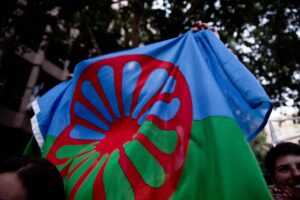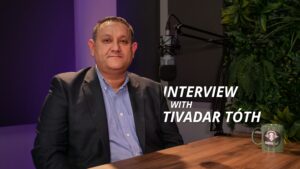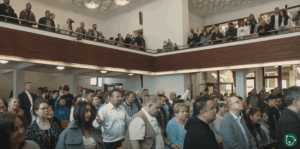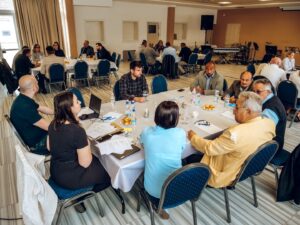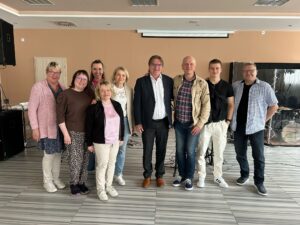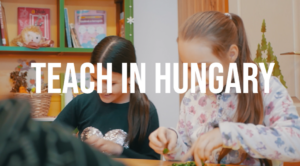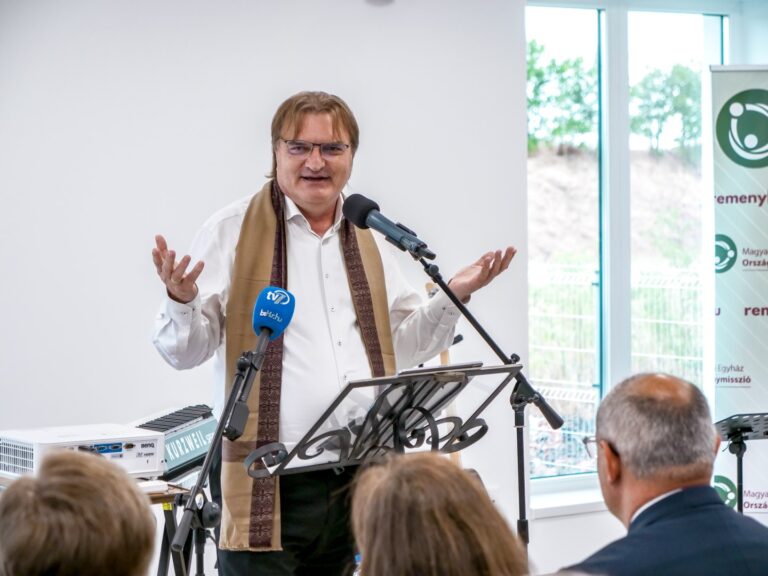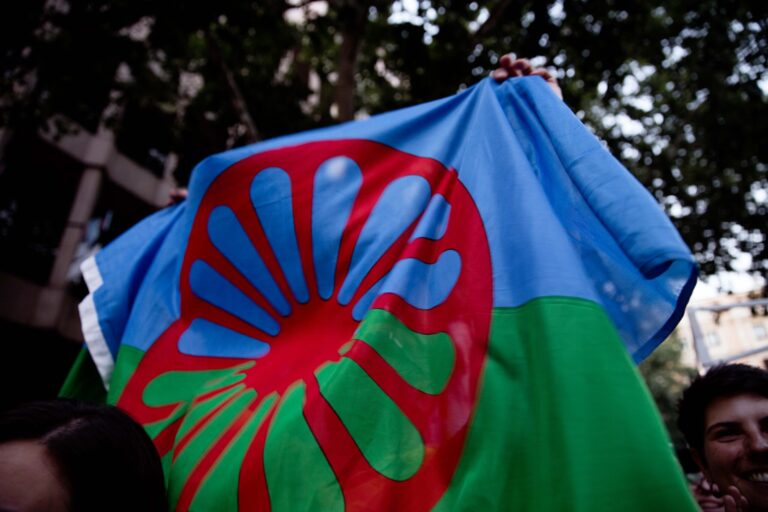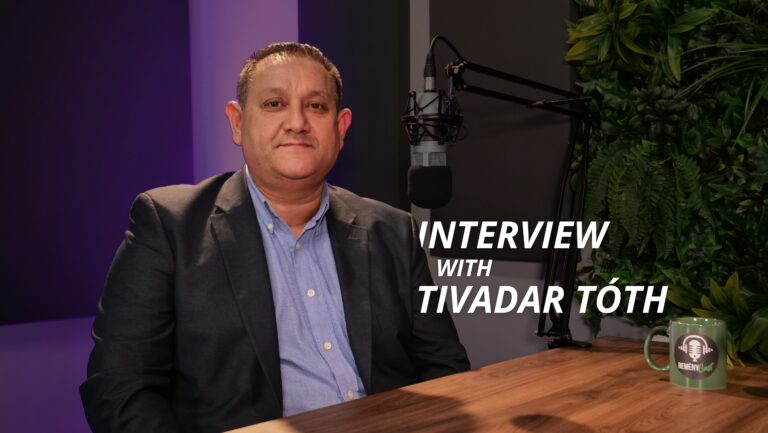Hungarian Pentecostal Church established Hungarian Gypsy Missions International in 1996 as an independent mission branch. The Gypsy Mission’s areas of activity cover the entire territory of the country. The organization helps underprivileged people, especially the Roma. The Mission gives mental, spiritual, educational, physical and financial support, along with life management counseling. Through its national network, Gypsy Mission is present in 350 settlements, providing social care, labor market services, mission activities, training and educational programs on a daily basis.
Hungarian Gypsy Missions International celebrated its 25th anniversary in November 2021.
God did great and wonderful things among the Roma and within the mission in the past 25 years.
“It pleases God that the Gypsies should be those who are in front, who set an example that everyone can look up to.”—has been said at the celebratory conference commemorating the first World Roma Congress that took place 50 years ago and the 25th anniversary of the Hungarian Gypsy Missions International.
Albert Durkó, president of the mission, said the following in his celebratory greeting: “All thanks be to God, for although we have experienced many storms and have had to go through many hardships, the Lord has kept us and strengthened us to this day, and I believe He will continue to do so. God is reaching down to the Roma people in a special way, a great wave of revival will set in among them, not only in Hungary, but all throughout Europe. Ten years ago we could find only 3,250 Roma people in the church, but God told us that this small number was a seed, and that seed, if sown, will yield a hundredfold. I believe the time will come when there will be 325,000 Roma brought to Christ, and I am proclaiming this. When God says something, it is already done, and we are preparing on how to manage and retain the large number of Roma people.” As he put it, that is why the Mission makes agreements with universities, works together with local governments and anyone who wants to do something for this case.
“We believe there will be a large crowd that will need help to recover. When someone is converted, they are already open to changing their lives. We must represent the kingdom of God at the place we were planted, and that means first and foremost accepting ourselves as we are, but more than that, seeing our mission, the calling that God himself gave us. We are citizens and followers of His Kingdom, and that means being faithful in the place where He has ordained us. I see masses of Roma people submitting to the Kingdom of God, who will be honest craftsmen, politicians, doctors, and will participate in all areas of life, representing the gospel, the faith, that makes a person, a family and a nation stable.”—said Albert Durkó.
Attila Sztojka, the Government Commissioner responsible for Roma relations, also recalled the World Congress. As he said before the occasion, although the world knew that a Roma community existed, people did not think it could function as a nationality. In his view, the Békés centered HGMI will go a long way in helping people preserve their core values.
In her presentation, Katalin Langerné Victor, Deputy Secretary of State for Social Inclusion said that the number of unemployed Roma had halved.
László Surman, Mission Director has told about countless miracles happening over the past 25 years.
“Gypsies, both in the past and today, starve for love, they want to feel that they are important, that God cares for them, and that He has planned good things for them. After conversion, you no longer think you have no future, but believe that God is good and has a plan for you. This change is able to tear nations out of the determinations that can and must be torn apart. We can recall countless miracles of someone’s conversion and revival.”
Rev. András Berki, Vice President, continued the series of miracles in his presentation. “Many came to the churches as illiterate, but they received audio Bibles, and very soon we noticed an increase of knowledge in them, they recited the Word of God. Those who previously have had difficulties reading, began to read the Word more and more, hoping that Jesus might tell them something personal, until at one point they began to read it fluently.”
CharityPoints play an important role in the activities of the mission. Pál Péter, pastor of HGMI Zákányszék Church explained their operation: “We are ready to offer help at the CharityPoints we operate. We are always there when there is a need for us. After giving support, we are able to talk about the fact that it is God who lives in us, and it is often after that talk that we see people come to the church.”
Miklós Rézműves, pastor of HGMI Nyírvasvári Church, reported on youth work and the role of civilians and religious communities. “Unfortunately, there are a lot of young people without a vision for their lives. In our youth group meetings we want to reassure them that it is worth living, moving forward, studying, and becoming a father or a mother. One of our most important tasks is to paint a picture for young people that they can hold on to, and we need to create the opportunity for them to meet Jesus Christ.”
Rita Patkás, Head of Educational and Training Establishments, gave a presentation on education. “Our goal is more than erecting a building for ourselves, it is to build society, a place that can become a hallway of God’s Kingdom. We are present in 137 churches across eight counties of Hungary, and in 353 settlements including all other services. As a mission, we believe we need to be there to support the spiritual development of children, families, and educators. We can do this because of the help of mission staff and family mentors. We are also pleased that the management of the institution considers talent management to be key, so we can report outstanding results in various areas.” From this presentation we also learned that community centres also play an important role in the life of students.
The Social Services Centre is one of the pillars of the mission. Hajnalka Fazekas, Centre Director informed the participants about the work of the last 12 years. “Our social services are present in ten counties nationwide and in Budapest. The visiting and assistance services are operating in 106 settlements, currently supporting 6,250 people in need. We are providing subsidised meal programmes for more than 8,000 people. We operate a psychosocial rehabilitation programme for psychiatric patients since 2012, and we provide developmental employment for psychiatric patients since 2018.”
The mission staff continue to see hope as the main driving force of their work. A hope that will heal the sick, lift up the hopeless, and proclaim that the last can become first.

















